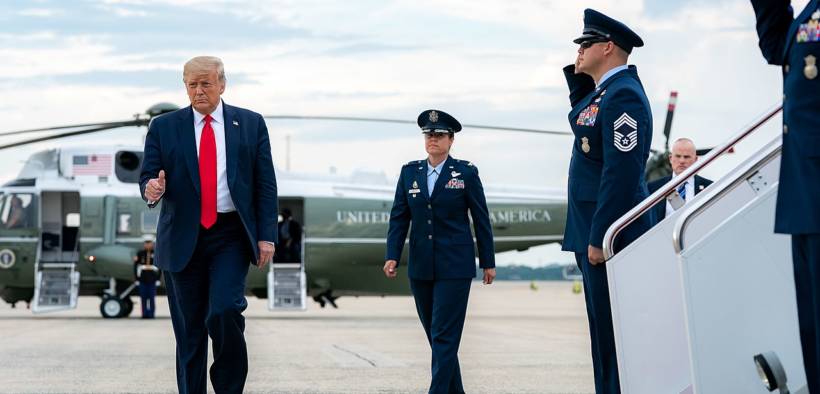Trump Lawyers Argue Manhattan Investigation is Harassment, Request Investigation Details

“No citizen, not even the president, is categorically above the common duty to produce evidence when called upon in a criminal proceeding.”
Lawyers for US President Donald Trump responded to legal pressure from Manhattan District Attorney Cyrus Vance Jr. on Monday. Vance has led an inquiry into Trump’s business deals, but the president’s lawyers said the Manhattan investigation is harassment.
Vance’s office is seeking Trump’s income tax statements, which have been a recent object of a Supreme Court battle. The Court ruled that the president is not immune to such requests, but permitted Trump to build a new defense against turning over the records.
Attorneys for the president said Vance is “still fishing for a way to justify his harassment of the president,” The New York Times reported.
Trying to Understand the Scope
Trump’s legal team filed two separate requests pertaining to Vance’s investigation. In the first, they asked a federal judge in the Southern District of New York to mandate Vance provide specifics about the district attorney’s investigation. The lawyers would like to understand the scope of the inquiry.
Last week, the district attorney’s office asserted it has a right to eight years of records including Trump’s personal tax returns and documents related to his businesses. At the time, Vance’s team only said it was investigating possible bank and insurance fraud. Initially, Vance was only believed to be investigations of alleged hush-money payments from the president to pornstar Stormy Daniels. Last week’s filing shed more light on the direction of the Manhattan investigation, Bloomberg reported.
“If the district attorney convened the grand jury in order to investigate allegations discussed in these articles, he could’ve said so,” Trump’s lawyers said. “But the bare fact that ‘there were public allegations of possible criminal activity,’ which is all these citations show, provides no insight into whether the grand jury is in fact investigating them and whether they were a basis for issuing this subpoena.”
Trump’s attorneys are also demanding justification for the trove of documents Vance’s office has requested.
‘Sweeping’
Furthermore, in its second filing, Trump’s legal team argued Vance’s subpoena is too expansive. The district attorney requested “every document and communication related to the president and his businesses over about the last decade,” the lawyers wrote. Additionally, they said Vance simply copy and pasted from a similar subpoena from a Congress.
“The Mazars (Trump’s accounting firm) subpoena is so sweeping,” the president’s lawyers wrote, “that it amounts to an unguided and unlawful fishing expedition into the president’s personal financial and business dealings.”
Vance filed last week a motion to dismiss Trump’s legal challenge to the grand jury subpoena. Trump’s lawyers rebutted the motion by arguing the evidence offered as rationale is insufficient, CNBC reported.
“Yet the District Attorney’s motion heavily relies on a declaration submitted by a member of his staff and an assortment of newspaper articles. In short, the District Attorney inappropriately asks this Court to ignore the Federal Rules at every turn,” Trump’s lawyers argued. “At no point — in this motion or in any public filing — has the District Attorney ever claimed that the topics discussed in these reports were the impetus for his investigation or are otherwise related to it.”
A Strategy Unlikely to Prevail
Trump’s legal defense to request details about the nature of Vance’s investigation may not work, according to one former attorney.
“The seeking of discovery is an interesting tactic, though unlikely to succeed, given that the issue at hand is limited in scope — namely whether the D.A.’s office has discretion to issue broad grand jury subpoenas, which it does,” said Andrew M. Lankler, former criminal defense lawyer for the Manhattan district attorney’s office.
Trump’s team has called the subpoena “wildly overboard” and “harassment,” but it cannot escape the fact that the Supreme Court ruled 7-2 that the president is still subject to subpoenas.
“No citizen, not even the president, is categorically above the common duty to produce evidence when called upon in a criminal proceeding,” Chief Justice John G. Roberts Jr. wrote for the majority.
Vance has targeted Trump’s tax returns, which he called “central evidence,” for nearly a year since he began his inquiry in 2018. The office has already received records from Deutsche Bank, which has lent Trump and his businesses billions of dollars.















